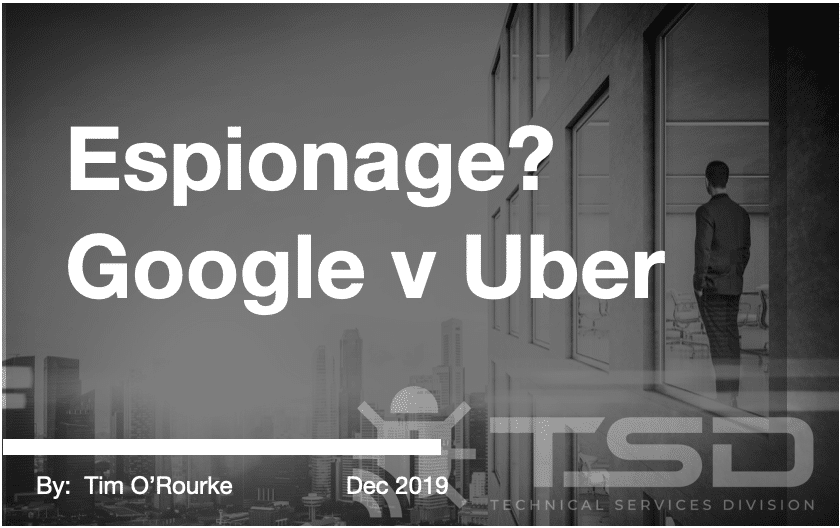
Big brands — Google and Uber, for instance — are always looking to one-up each another. Sometimes this takes the form of trying to hire away each other’s employees, and sometimes it manifests as something more malicious: espionage.
What happened in the Google vs. Uber incident?
In 2016, Google’s self-driving car division, Waymo, accused Uber of stealing its trade secrets. The basis for the lawsuit was that a former Google employee, Anthony Levandowski, had allegedly stolen 9.7 GB of confidential files before leaving to start his own self-driving truck company, Otto. Uber then acquired that company, and Levandowski came on board to work on Uber’s autonomous vehicle program.
Waymo accused Levandowski of downloading the files, which contained information on LiDAR, a key technology for self-driving cars, so that he could benefit Uber.
The consequences of the espionage
The espionage incident between Google and Uber has had far-reaching consequences for both companies. For Uber, it was a major setback in the company’s plans for self-driving cars. Uber was forced to settle with Waymo, giving Waymo a 0.34% stake in the business and agreeing to share any relevant technology going forward. This puts Uber at a disadvantage in the race to develop autonomous vehicles. The whole incident was a major black eye for Uber, and it’s still unclear how much of an impact it will have on the company’s long-term plans.
For Google, the incident raised questions about its ability to protect trade secrets. The company was already facing criticism for its handling of user data, and this incident will likely only add to those concerns. Google will need to work hard to rebuild trust with both consumers and businesses if it wants to maintain its position as a leader in the tech industry.
The incident also highlights the intense competition between these two companies. Google and Uber are both vying for a share of the autonomous vehicle market, and this incident is sure to add fuel to that fire. We can likely expect to see plenty of back-and-forth between these two companies in the years to come.
How it could have been prevented
There is nothing more precious to a business than its trade secrets. When these are stolen, it can put the company at a serious competitive disadvantage. To prevent something like this from happening, companies need to take steps to protect their information.
One way to do this is to have strict security measures in place for employees who have access to sensitive information. This could include things such as password protection, two-factor authentication, and data encryption.
Another way to protect trade secrets is to have employees sign nondisclosure agreements. This can help to deter potential thieves, as they will be aware that they could face legal consequences if they are caught stealing information.
Finally, companies should regularly review their security procedures to make sure that they are keeping up with the latest threats. By staying one step ahead of the competition, they can help to ensure that their trade secrets remain safe and sound.
What can be learned from this debacle?
The Google-Uber espionage incident is a cautionary tale for businesses of all sizes. It highlights the importance of protecting trade secrets and taking steps to ensure that information is only accessible to those who need it. It also shows the importance of competition in the tech industry.
When it comes to protecting against espionage, businesses need to be proactive. In today’s day and age, it is absolutely necessary to display vigilance when it comes to safeguarding company information. With the right precautions in place, businesses can help to ensure that their secrets remain safe from prying eyes.



